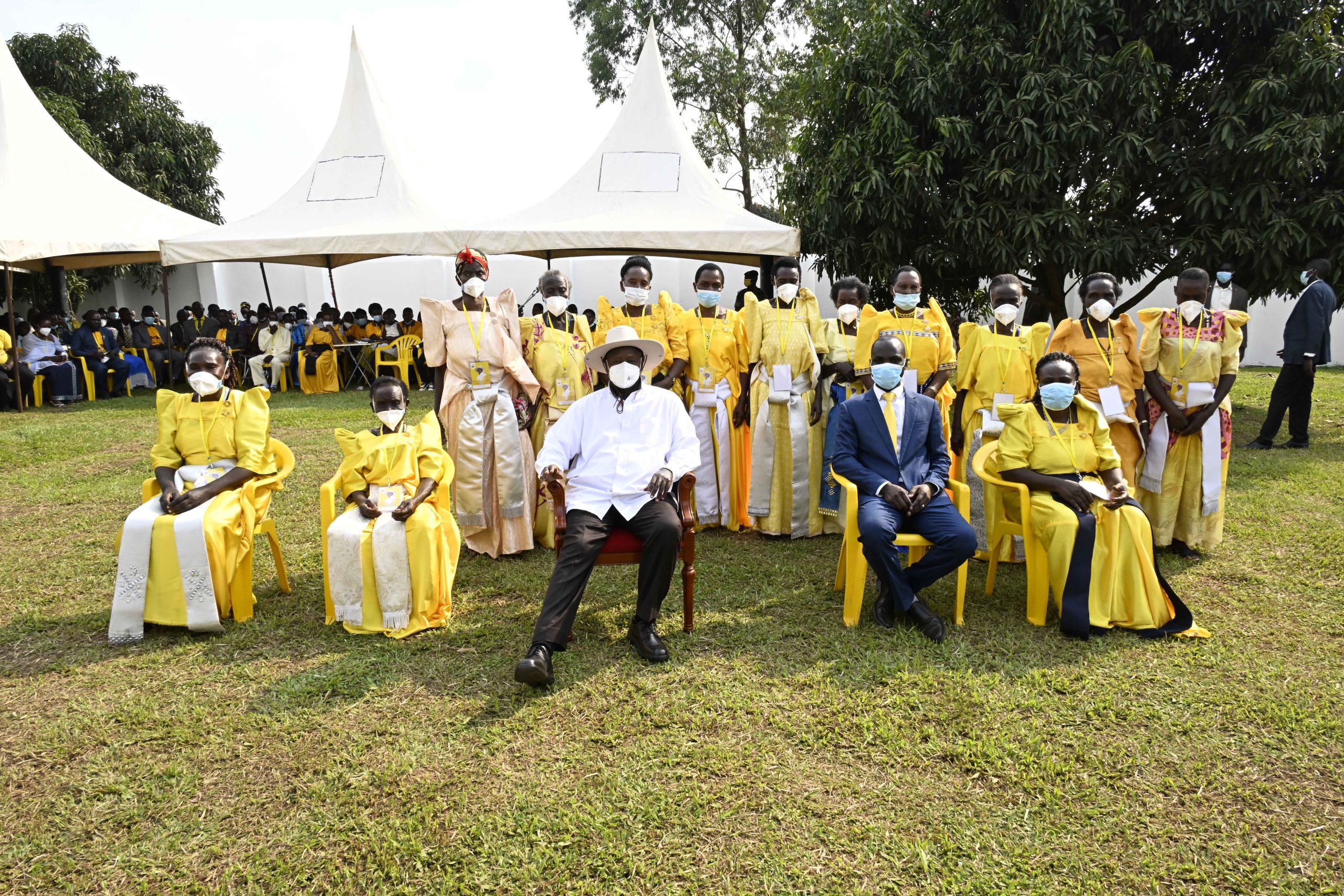The Ugandan Government Agencies Perfecting the Art of Corruption
Uganda’s capital, Kampala, recently witnessed a scene that could easily be mistaken for a high-stakes film. On July 23, a group of 45 brave souls decided to test their mettle against the mighty force of Ugandan police in a protest against the country’s infamous corruption problem. Inspired by the fiery youth-led protests in neighboring Kenya, these young Ugandans took to the streets armed with online mobilization and a desire for change. Their demands? A call for the resignation of Speaker of Parliament Anita Among, who, along with her parliamentary colleagues, found herself entangled in a corruption exposé earlier this year. They also wanted a reduction in the salaries of Ugandan parliamentarians, who, let’s face it, are among the highest-paid in the world.
The police, however, were not in the mood for a peaceful exchange. They greeted the protesters with the same enthusiasm one might reserve for a surprise visit from the taxman—forcefully. Dozens were arrested and charged with “common nuisance,” a colonial-era offence that has long been the go-to for quelling legitimate demonstrations.
The day before the big event, Praise Aloikin, one of the protesters, shared his optimism: “We know we will be met with resistance from the government. But we hope this will normalize Ugandans to exercise their right to protest.” Spoiler alert: Aloikin was among those arrested and subsequently found himself on a first-name basis with prison walls.
As if the crackdown wasn’t enough, police continued their crackdown spree, adding to their trophy collection by arresting three more protesters who were merely trying to hold a press conference. Meanwhile, President Yoweri Museveni, never one to shy away from a good threat, warned the protesters they were “playing with fire.” The stakes, apparently, were high.
Ugandan authorities have a rather impressive track record of cracking down on activists, political opposition members, and human rights defenders who dare to speak out against issues such as oil sector developments and police brutality. It’s almost as if they have a manual titled “How to Suppress Dissent: A Comprehensive Guide.”
In a twist of irony, the very agencies designed to combat corruption, such as the Inspector General of Government (IGG) and other anti-graft bodies, are often themselves embroiled in it. According to a 2022 biannual report by IGG Beti Kamya, the top offenders in corruption are none other than the local district administrations and police. It seems that the people we trust to keep things in check are busy perfecting the art of “self-service.”
Here’s a quick rundown of Uganda’s top five corruption champions, according to the latest IGG rankings in 2022:
| Rank | Agency | Number of Complaints |
|---|---|---|
| 1 | District Administrations | 293 |
| 2 | Uganda Police Force | 41 |
| 3 | Education Ministry | – |
| 4 | Kampala Capital City Authority (KCCA) | – |
| 5 | Uganda Prison Services | – |
The Uganda Prison Services have managed to sneak into the top five, which must be some sort of accomplishment in its own right. Their spokesman, Frank Baine, said he would need to read the report before commenting. It’s always refreshing to see someone admitting they’re out of the loop.
Meanwhile, Mr. Jameson Karemani, spokesperson for the Judiciary, also decided to play it safe, insisting he needed to see the report himself before commenting. His hesitation might be because he’s still trying to wrap his head around the concept of “corruption.”
Other institutions receiving notable mentions include various municipal and town councils, as well as private organizations. The IGG’s report even shed light on a few least corrupt agencies, such as the Uganda Registration Services Bureau (URSB) and Uganda National Examinations Board (Uneb), which, given the context, is akin to finding a needle in a haystack.
The public’s fear of reporting corruption is palpable, with 118 complainants choosing to remain anonymous. Out of 761 new complaints, 532 were from men, and only 29 from women. One can only speculate why.
Interestingly, despite the legal framework set up to combat corruption, including the national lifestyle audit campaign launched by President Museveni, progress remains sluggish. The lifestyle audit, which aims to analyze income versus expenditure and assets versus liabilities, has been met with mixed reactions. Speaker Among has pointed out the need for a legal framework to extend accountability to the private sector, suggesting a constitutional amendment might be necessary.
Parliament’s New Role: Uganda’s Top Corruption Arena
Our beloved Parliament has managed to outdo itself in the fine art of questionable ethics. While some lawmakers are currently facing the very real prospect of custodial sentences, others are busy turning the parliamentary boardroom into a stage to convince foreign investors to loosen their wallets.
At the recent Cabinet Introspection Retreat at the National Leadership Institute in Kyankwanzi, President Museveni, channeling his inner critic, took to the stage once again to roast the House. “The Parliament has certainly earned its bad reputation,” he said, with a tone so dripping with disdain that it could rival the best of Kampala’s local comedians.
Museveni, with his usual flair for the dramatic, lamented the betrayal of the National Resistance Army’s (NRA) anti-corruption legacy. According to him, the once-revered fight against graft has taken a nosedive thanks to a select few handling financial matters who seem to think that “public service” means “private perks.” “The problem,” he added with a hint of nostalgia for the good old days, “worsened when MPs started rewarding themselves like it’s a Christmas party every day.”
As the cost-of-living crisis gnaws at the heels of Generation Z, they have begun to channel their disillusionment into online outbursts. The recent comments by Speaker Anita Among about funds eventually trickling down to the average voter stirred quite the ruckus among the younger generation. Apparently, they are not buying into the trickle-down theory—perhaps because they’ve seen too many trickles dry up before reaching their pockets.
In recent scandals, MPs like Ms. Namujju and her compatriots have been accused of attempting to shake down the Uganda Human Rights Commission for a bit of extra cash during the budgeting process for FY 2024/2025. This brings to mind the traditional tale of a hungry hyena trying to squeeze a meal out of a reluctant lion.
Then there’s President Museveni’s recent frustration over the Appropriations Bill, where he famously withheld his signature until over Shs700 billion was reinstated into the budget. Meanwhile, the President and many citizens were left scratching their heads over the wisdom of splashing over Shs1 billion on service awards for four backbench parliamentary commissioners. It seems Parliament’s idea of “service” has expanded beyond the call of duty.
Museveni, ever the reluctant blocker of MP salary hikes, confessed he preferred letting MPs “learn from their mistakes” rather than outright blocking their indulgences. This approach might explain why Uganda’s Parliament is increasingly seen as a showcase of opulence—an all-you-can-eat buffet of perks and allowances that would make even the most seasoned celebrants at a Kampala wedding blush.
With a list of perks that reads like a shopping spree—Shs150m for a vehicle allowance, a net salary increase of Shs6.1m, and more allowances than a wedding guest has plates—it’s no wonder Parliament is seen as a den of excess. The lawmaker’s perks even include a free iPad, which seems to serve as the icing on a very extravagant cake.
But how did Parliament, once a symbol of resistance, become synonymous with corruption? According to political analyst Moses Khisa, it all comes back to Museveni’s regime and its penchant for transactional politics. The current state of affairs in Parliament, where deals are struck with the ease of buying a Matooke at the market, reflects an “accumulation of decay and dysfunction.”
The graft, it seems, has been a slow but steady creep since the days of the Seventh Parliament, with even opposition members getting their share of the loot. Lawmakers in oversight committees, entrusted with policing government corruption, have themselves become part of the problem—a bit like having the fox guard the henhouse.
The rise of corruption within Parliament can be traced back to the Seventh Parliament, where even the opposition had its share of scandals. The Budget Committee, for instance, became notorious for its power to clear budgets with almost any condition, turning a once-revered institution into a playground for shady dealings.
Former MP Gerald Karuhanga’s recount of his time on the Public Accounts Committee paints a vivid picture of the rot within. From clandestine bribes to misleading reports, it’s clear that the corruption game in Parliament has evolved into an art form. The cunning nature of MPs receiving bribes and adjusting reports to suit their benefactors was so pronounced that even attempts to expose it were met with hostility and threats.
Ruzindana, a former Inspector General of Government, lamented the transformation of Parliament from a place of modesty to a symbol of excess. Once a bastion of integrity, the institution now finds itself mired in scandals of opulence, with modern MPs seemingly more interested in perks than principle.
The old guard, including Ruzindana, reflected on a time when Parliament was more about service than self-enrichment. The shift from a humble institution to a glittering display of excess is a testament to the gradual erosion of values.
Will Uganda’s Parliament ever regain its former dignity, or will it continue to serve as a cautionary tale of corruption and excess?




















